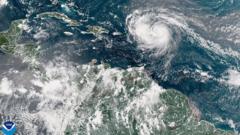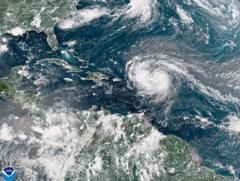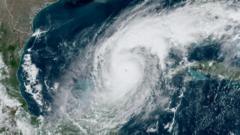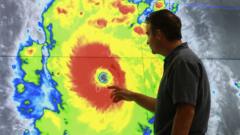The Department of Defense (DoD) has temporarily reversed its decision to cut access to vital satellite data essential for monitoring hurricanes, extending availability through July 31 instead of the initially set June 30 cut-off. Officials from the National Oceanic and Atmospheric Administration (NOAA) announced the data from three satellites, which are jointly managed by NOAA and the DoD, would be essential for hurricane forecasting. They cited a "significant cybersecurity risk" as the reason for the data being taken offline, sparking confusion and alarm among climate scientists and meteorologists.
The abrupt announcement last week by NOAA indicated that this data would become unavailable to forecasters, potentially jeopardizing the accuracy of hurricane predictions. Subsequently, the decision to extend access came after a request from a NASA scientist, highlighting how unanticipated the DoD's earlier decision was for government forecasters.
Meteorologist Michael Lowry, who has experience with the National Hurricane Center and FEMA, expressed concern about the looming peak hurricane months of August, September, and October, stating, “It unfortunately doesn’t get us to the peak months of hurricane season when our strongest hurricanes typically form.” The implications of this data disruption extend beyond hurricane forecasting, affecting critical research on climate changes, particularly regarding sea ice in polar regions.
Sharon Stammerjohn, a senior research associate at the University of Colorado Boulder, emphasized the importance of this data for observing changes in sea ice, a crucial factor in global climate regulation. While alternative satellite data from the European Space Agency and Japan may supplement the observations, there are significant discrepancies between different datasets that could complicate analyses.
As the U.S. remains in the thick of hurricane season, the temporary reprieve offers a crucial, albeit limited, opportunity for forecasters to better predict hurricane movements and trajectories, underscoring the importance of uninterrupted access to satellite data in the fight against climate change and the mitigation of natural disasters.





















